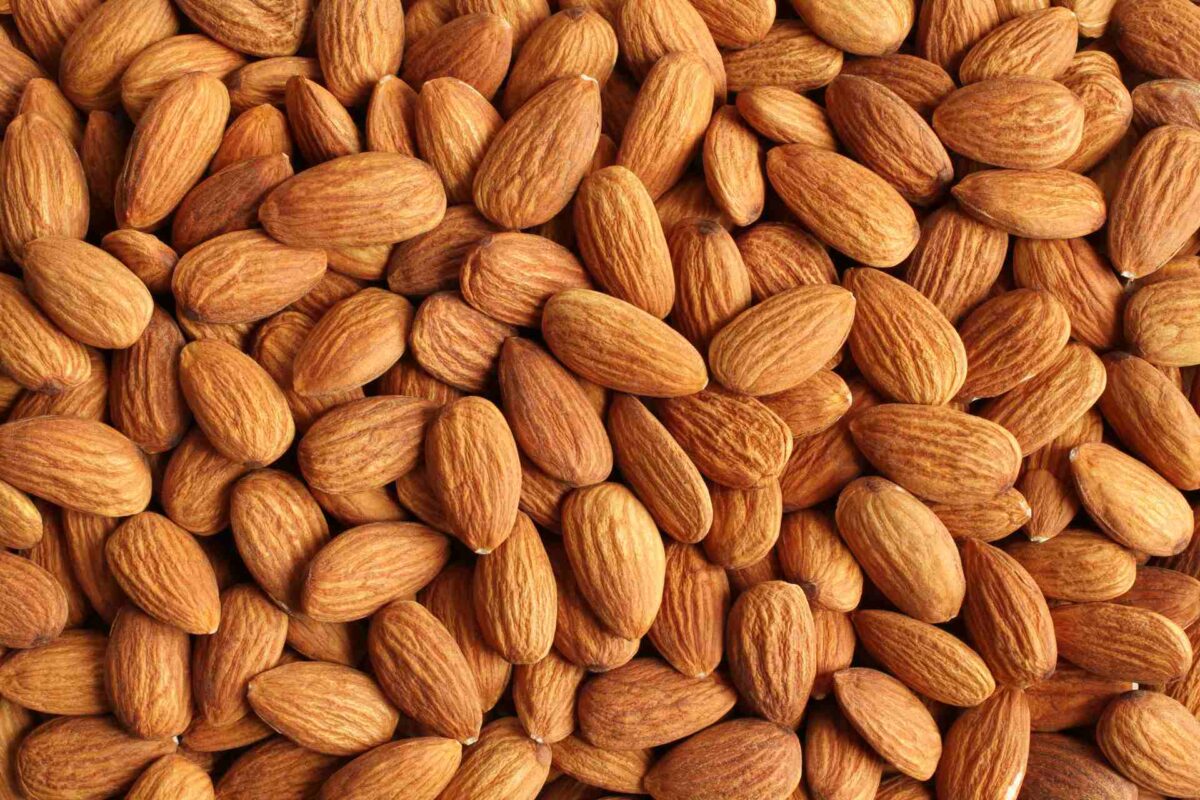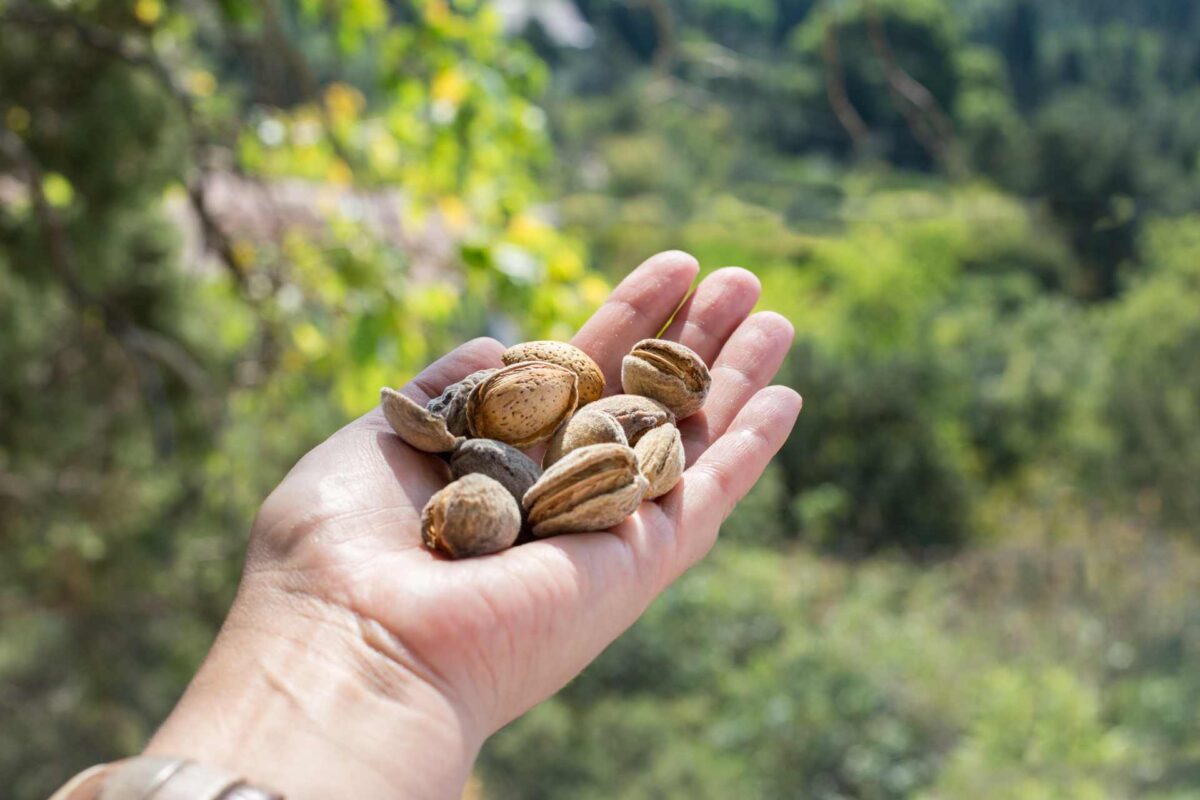The Journey of Raw Almonds From Orchard to Industry
The lifecycle of an almond tree is a testament to nature’s precision, where each phase is crucial for the development of the nut. The harvesting process is initiated by evaluating the almonds’ maturity to ensure they are collected at the perfect moment for optimal flavor and nutritional value. Advanced machinery, such as the shaker, which clamps onto the trunk or branches to vibrate the tree, facilitates the almonds’ fall onto the orchard floor.
This careful collection of raw almonds marks the start of their journey toward becoming a valued component in various products.
How Are Almonds Processed?
Once harvested, the almonds undergo a series of initial processing steps that are critical for preparing them for their final use. These steps include:
- Cleaning: The raw almonds are thoroughly cleaned to remove any dirt, leaves, or other debris that may have been collected during the harvesting process.
- Hulling: The outer hull of the almond is removed, revealing the shell that houses the almond kernel. This process is performed with precision to ensure the shell remains intact.
- Shelling: Next, the almond shells are cracked open to extract the kernel. This process must be done with care to prevent damage to the almond itself.
- Sorting: The almonds are then run through an advanced sorting process to remove almonds with serious damage or defects.
- Sizing: Finally, the almonds are separated by size group.
Ensuring the Best with Advanced Almond Processing Techniques
To satisfy the diverse requirements of businesses and consumers, some almonds are subjected to advanced processing techniques that elevate their flavor, texture, and nutritional profile. Key among these methods are:
- Blanching: This technique, involving a brief immersion in boiling water, is employed to loosen the skin, which is then removed to achieve a smooth texture or to enhance the almond’s natural flavor in the final product. Modern blanching lines ensure uniform treatment of every almond, preserving its quality and taste.
- Slicing and Dicing: Precision cutting equipment allows almonds to be sliced, diced, or ground to specification, offering versatility in application from toppings and ingredients in food products to almond flour or butter.
Quality and Safety First in Almond Processing
At the core of almond processing is an unwavering commitment to quality and safety. To ensure every almond meets the highest standards, rigorous safety protocols are observed throughout the processing chain. These protocols include:
- Pathogen Testing: Regular testing for common pathogens to ensure the safety of the almonds before they enter the market.
- Metal Detection: Implementing advanced metal detection systems to screen for any possible contamination, ensuring that the final product is free from foreign materials.
- Critical Control Points: Establishing and monitoring critical control points within the processing line as part of a comprehensive HACCP (Hazard Analysis Critical Control Point) program to identify and mitigate potential hazards.
Harris Woolf Almonds exemplifies dedication to these safety measures. Utilizing the latest in food safety technology, such as precision optical sorting, Harris Woolf can detect and remove any imperfections or foreign material, ensuring only the highest quality almonds are packaged and shipped. This meticulous approach to safety underscores Harris Woolf’s commitment to delivering premium, safe almond products to their customers. Our products are Safe Quality Food (SQF) Certified, non-GMO, Kosher, Halal, and can be offered as USDA Organic.
Sustainability at the Heart of Almond Processing
In the almond processing industry, sustainability is key to ensuring the long-term health of the environment and the continued success of the sector. Industry-wide sustainability practices focus on several critical areas:
Water Management: Through the use of micro-irrigation technology, the industry aims to optimize water use, significantly reducing the amount of water needed per almond. This not only conserves precious water resources but also minimizes the environmental footprint of almond production.
Soil Health: Practices such as cover cropping and minimal tillage are employed to improve soil health. These methods increase biodiversity, enhance water retention, and sequester carbon, contributing to more sustainable and productive orchards.
Pollinator Health: Recognizing the crucial role of pollinators in almond cultivation, efforts to protect bee habitats and ensure their health are paramount. This includes creating pollinator-friendly environments within and around almond orchards and engaging in Integrated Pest Management (IPM) practices.
Waste Reduction: Transforming by-products of the almond processing industry, such as hulls and shells, into valuable resources like livestock feed and bedding materials, exemplifies the industry’s commitment to a zero-waste philosophy.
Discover Harris Woolf Almonds’ sustainable harvesting and processing innovation
Premium Almond Processing with Harris Woolf Almonds
Harris Woolf Almonds stands as a beacon of excellence in almond processing, blending over three decades of experience with a steadfast commitment to sustainability and quality. As a grower-owned leader in the industry, we have pioneered innovative almond processing solutions that meet the high standards of the world’s most recognized food and beverage companies. Our commitment to sustainability is evident in every step of our process, from our support for the 200+ farms that supply our almonds to our engagement in water conservation and pollinator health initiatives.
In collaboration with initiatives like the California Almond Stewardship Platform (CASP), we’re part of a larger movement towards more informed and sustainable almond farming practices. This, alongside our own sustainable methodologies, propels us toward reducing environmental impact and elevating product quality. Our future-focused strategies aim to lessen our carbon footprint and advance energy efficiency, securing our position as a leader in supplying plant-based ingredient solutions.
Process your almonds with us today!














